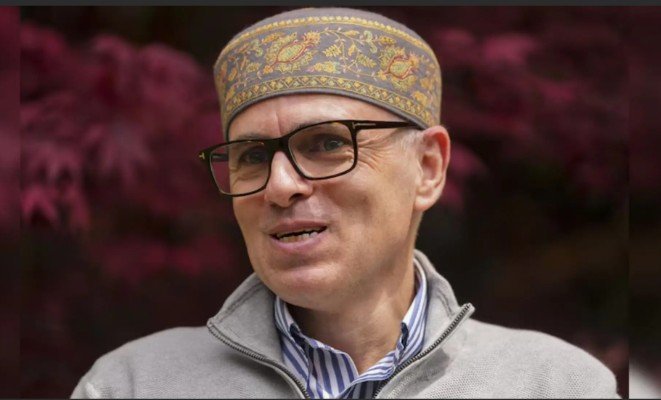Omar Abdullah Marks One Year in Office, Statehood Still Elusive
Despite completing a year as Chief Minister, Omar Abdullah’s government has little to show on its key promise of restoring Jammu and Kashmir’s statehood and special status.
SRINAGAR, Oct 16: Jammu and Kashmir Chief Minister Omar Abdullah on Thursday completed one year in office, but the restoration of statehood his flagship election promise remains far from reality.
Abdullah was sworn in as the first chief minister of the Union Territory of Jammu and Kashmir on October 16 last year, following the National Conference’s landslide victory in the assembly elections its first in nearly a decade. However, one year later, many of the party’s poll pledges remain unfulfilled.
The National Conference’s manifesto, “Dignity, Identity and Development,” had pledged to pursue the full implementation of the 2000 Autonomy Resolution, restore the pre-August 5, 2019 status under Articles 370 and 35A, and reclaim statehood for Jammu and Kashmir. It had also vowed to seek modifications to the Jammu and Kashmir Reorganisation Act, 2019, and repeal laws enacted after the revocation of special status that affect land and employment rights of locals.
So far, the government’s tangible actions on these fronts have been limited to two symbolic resolutions — one in the cabinet and another in the assembly both urging the Centre to restore statehood and constitutional safeguards for the region.
The slow pace of political progress has drawn criticism from both the opposition and within the ruling party. Several voices in the Valley have accused the Abdullah government of “appeasing New Delhi” and failing to demonstrate political will.
Ruhullah Mehdi, the party’s MP from Srinagar, admitted that “whatever needed to be done on the political front has not happened,” adding that there was “a need to show intent.”
Despite the political setbacks, the National Conference government claims it has focused on welfare and development. Among its achievements are raising the marriage assistance fund for poor brides from ₹50,000 to ₹75,000, launching free bus services for women, initiating inter-district smart bus connectivity, restoring the academic calendar to October-November, reducing stamp duty for family property transfers, and expanding free ration schemes for weaker sections.
Chief Minister Abdullah has often attributed his government’s limited progress to the “divided power structure” between the elected government and the Lieutenant Governor, saying it constrains administrative and legislative decision-making.
The government also continues to grapple with significant challenges. The April 22 Pahalgam terror attack dealt a heavy blow to the region’s tourism sector, which further suffered due to floods and unseasonal rains. The subsequent India-Pakistan border tensions and “Operation Sindoor” added to the region’s woes, especially for border residents.
Additionally, the administration faces criticism for delaying a decision on the contentious reservation policy, which reduced the general category quota in government jobs and college admissions to 30 percent. Although a cabinet sub-committee was formed last December to address the issue, no decisive action has been taken even months after the report’s submission.
As Omar Abdullah completes his first year in power, public expectations remain high, but the government’s core political promises especially the restoration of statehood appear no closer to fulfillment.




